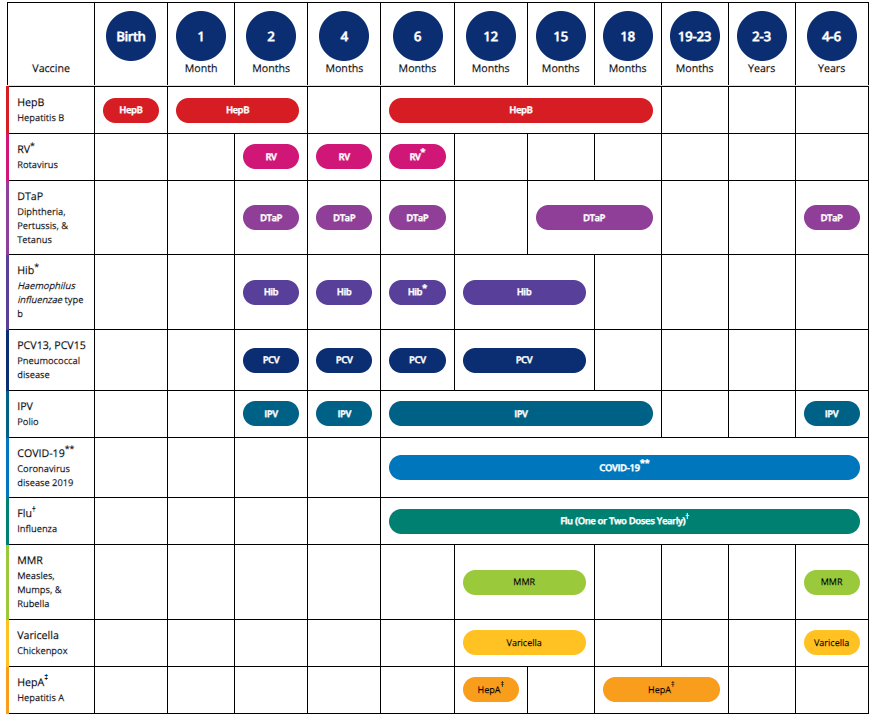
As a parent or caregiver, you make important decisions that affect your children every day, including vaccinations. Vaccines can save your child’s life and the lives of others in your community. Talk to your family's health care provider about recommended vaccines.
- Following the recommended vaccination schedule protects children from 14 preventable diseases and also protects families and communities.
- Most childhood vaccines are 90% to 99% effective in preventing disease (American Academy of Pediatrics).
- If a vaccinated child does get the disease, the symptoms are usually less serious than in a child who hasn’t been vaccinated.
Recommended Vaccines by Age
An immunization schedule lists the timing of recommended vaccinations. The CDC’s recommendations are based on extensive research. It was created to protect children from diseases at the earliest time that vaccines are safe and effective. Delaying vaccines leaves your child vulnerable to disease at the time when they are the most at risk.
During Pregnancy
Your health and wellbeing are more important than ever – for yourself and your developing baby. Getting recommended vaccines during pregnancy protects you both. That's because you will pass on some temporary protection until your baby is old enough to get vaccinated. Some may need additional vaccines during pregnancy. Your doctor or midwife can provide more information. The CDC recommends the following vaccines during pregnancy:
By vaccinating during pregnancy and asking other family members and caregivers to do the same, you are giving your newborn protection from potentially severe, life-threatening diseases, including whooping cough (pertussis). Pregnant people should get a dose of Tdap during every pregnancy between 27 through 36 weeks.
Annual respiratory virus vaccines (fall and winter):
You can get your flu shot before, during or after pregnancy. It is recommended to get your flu shot during fall or winter. It's a safe and effective way to protect yourself and your baby from flu. Pregnant people are more likely to have severe illness from flu, possibly due to changes in immune, heart, and lung functions during pregnancy. Flu may also be harmful to a pregnant person’s developing baby. Learn more at CDC
More from the American College of Obstetricians and Gynecologists
Pregnant people are more likely to get severely ill with COVID-19 compared with non-pregnant people. Getting a COVID-19 vaccine during pregnancy can protect you from severe illness. More on COVID-19 vaccines while pregnant or breastfeeding (CDC)
CDC recommends one dose of a seasonal RSV vaccine (from September through January) at the end of pregnancy (32 through 36 weeks) to protect newborns from severe RSV illnesses - the leading cause of hospitalization for infants in the U.S. Learn more.

